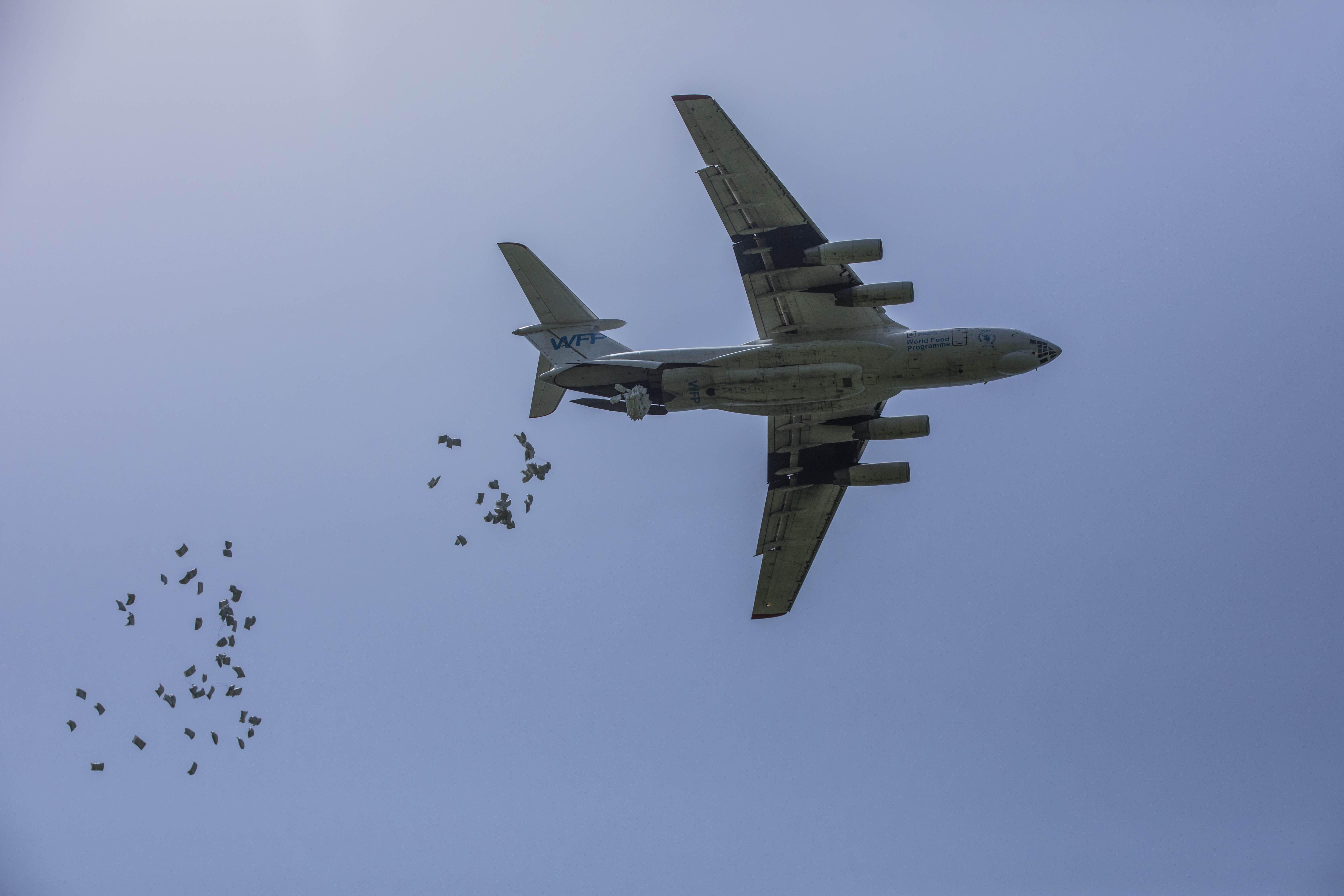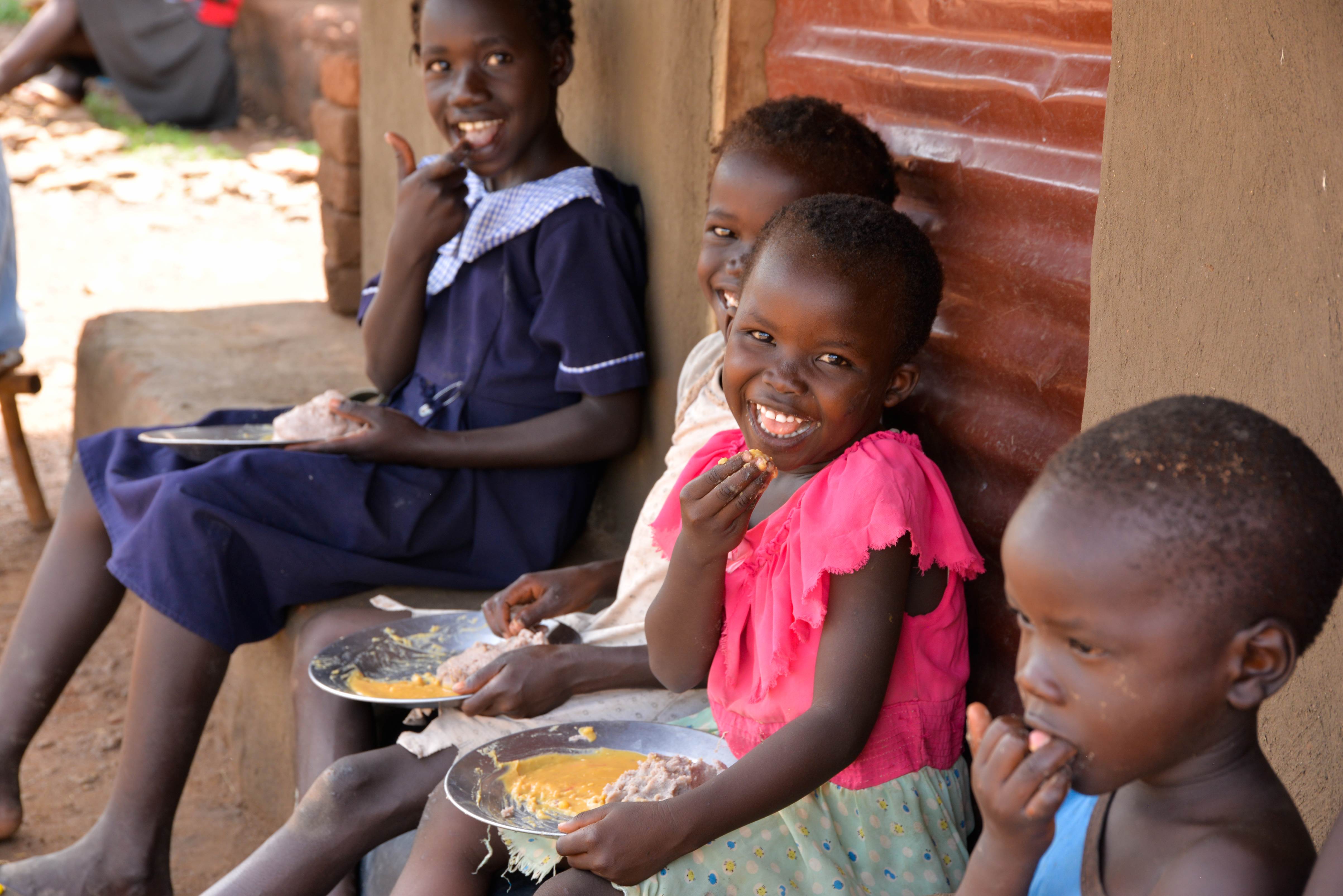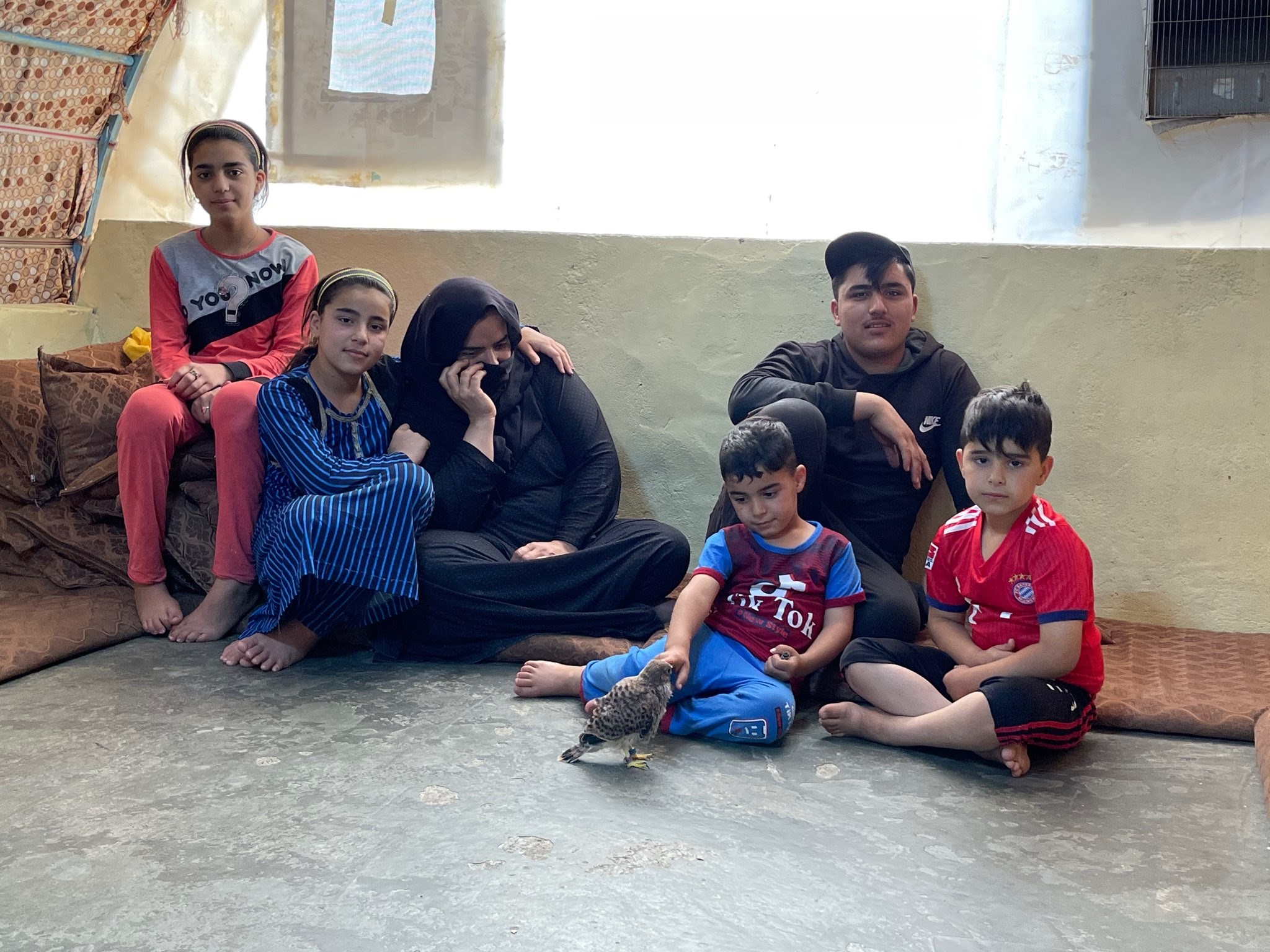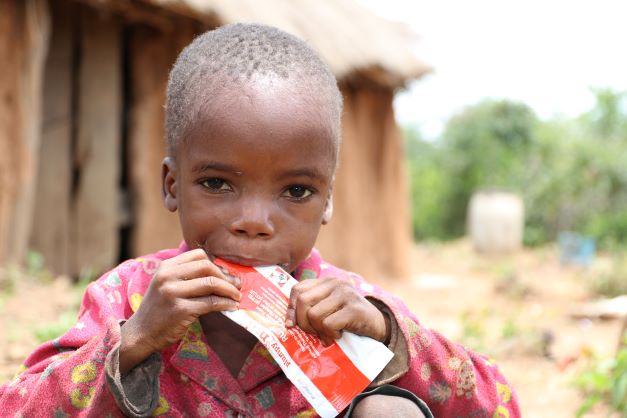
You won’t believe how far this team will go
delivering food
From air drops to crocodile-infested waters to inter-communal conflicts and unpredictable weather. The work of the small team of emergency responders in South Sudan delivering food to communities that need it most is as challenging as it is rewarding.
“Some areas are difficult to reach with no cellular networks, passable roads, available markets and medical facilities”, says Benard Nyataya, Food Assistance RRM Coordinator.
World Vision’s Rapid Response Mechanism (RRM) Project in partnership with the World Food Programme (WFP) brings life-saving food to internally displaced communities in the most remote regions of South Sudan. The life-saving operation, in coordination with the United Nations, requires small teams to spend 2-3 weeks in remote field locations and facilitates the transport of food via planes, helicopters or water-craft.
For the 28 World Vision staff members, it’s a grueling work, but it’s a job that takes extreme conditions in stride. Often with only 72 hours’ notice, the team can be asked to leave, which means they must be always prepared, both physically and mentally.
“It is a constant challenge to keep the team’s morale high as we are cut off from the external world, sometimes for as long as three weeks. It is crucial that we make sure that every team member is mission ready at all times and accessible around the clock when help is needed. It is hard being on stand-by day and night knowing something can go wrong anytime.”
The teams are no stranger to volatile conditions and danger: from makeshift camping areas with basic tents and bad weather to snakes, crocodiles, scorpions, hyenas & even prowling lions. But it’s not just wild animals and extreme weather that pose a threat; stray bullets can come out of nowhere as the teams move through communities that can be at war with each other.
“The various delivery modes such as air drops and river deliveries, as well as inland by trucks mean that the team has to adapt to various, and very volatile, operating environments,” Nyataya explains. “For airdrops, the bags are dropped within a distance of one kilometer by 0.4 km and all have to be strictly accounted for. The river locations mean that the team has to take boat rides and distribute as rapidly as they can for a period of up to a month.”
And then of course, the COVID-19 pandemic came, changing everything. The immediate dangers, restrictions and limitations have only increased the sacrifice teams must make to help families survive the hunger crisis.
“I am proud to be a part of a team that is committed to reaching out to the most hurting communities suffering in extreme conditions, where few would want to go.”
Despite the risks, Nyataya and his team find the work increasingly rewarding and fulfilling.
The RRM supports 191,131 people during the Lean Season, when communities are most at risk of disease and starvation. Of the RRM’s beneficiaries, 35,676 are children. Helping thousands of the most vulnerable in volatile places survive and build a future within their communities is an incredible testament to the difference that the actions of determined people can make.
By supporting the work of World Vision with this life-saving initiative, you are helping us to support those in greatest need.
By donating the price of your next meal — you can help our teams provide enough food to feed an entire family for a day, a week, or a month.
Photo courtesy of World Food Programme South Sudan.



